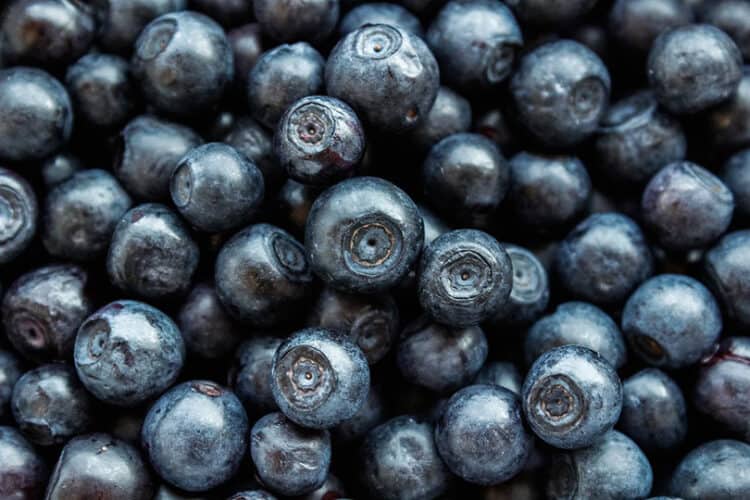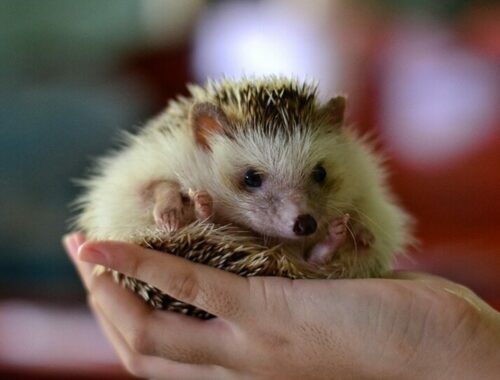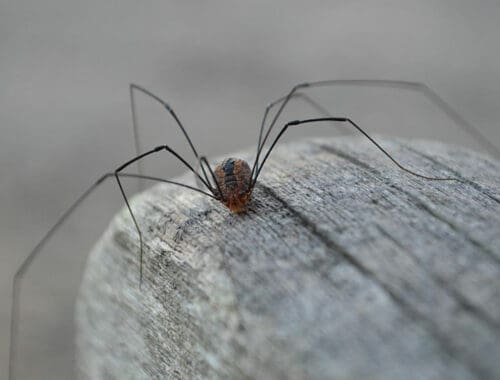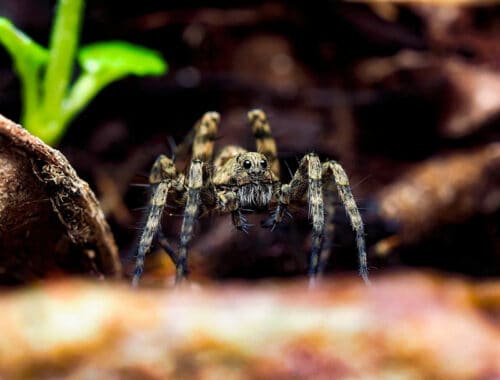It’s not uncommon for pet owners to slip their fur babies a few titbits from the kitchen every now and then. When we love the taste and texture of something yummy, we naturally want to share that experience with pets and people around us. Unfortunately, if you’re not all that clued up on which fruits are safe for your cat to consume and which aren’t, you can unintentionally cause more harm than good to their health.
Blueberries are packed with high levels of antioxidants and are classified as a superfood in human nutrition. They aid in eye health, prevent heart disease, and regulate blood sugar. Since cats are obligate carnivores, they require mostly meat and digest foods differently from the way that humans do.
Although a cat’s diet doesn’t necessarily consist of fruits, they can safely eat blueberries, which offer a few health benefits that are good for cats.
Health Benefits of Blueberries in Cats
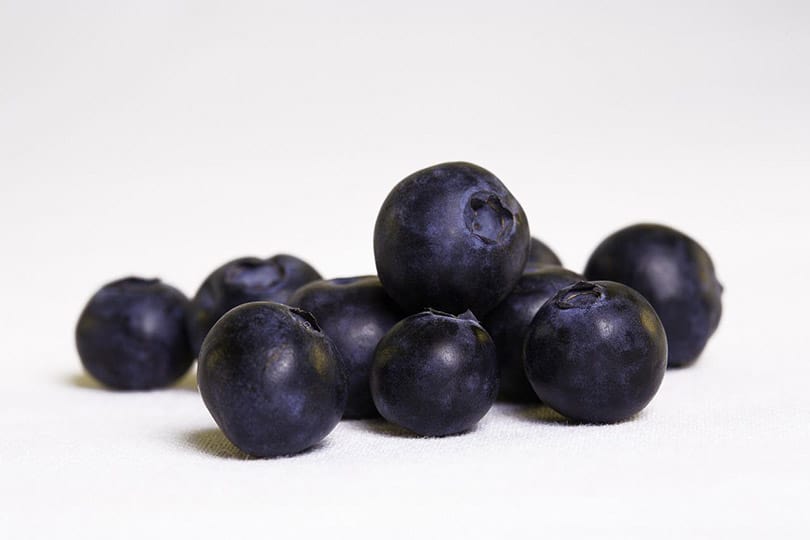
Because both humans and dogs are omnivores and require fruits and vegetables in their diets, most research on the benefits of blueberries has been done on them. Although cats receive most of their nutrients from meat, they’re able to absorb some nutrients and benefits from blueberries.
High in Antioxidants
Blueberries are high in antioxidants which is one of the main benefits they offer your cat as they fight free radicals, minimizing cell damage and protecting their bodies from diseases. Including antioxidants in your cat’s diet will help their bodies fight toxins and prevent chronic health conditions. and slow the aging process.
Many cat foods use blueberry extracts for their antioxidant benefits, which help heal urinary tract infections. They’re also used as a preservative to make the food last longer. However, they’re extracts and don’t contain the same sugar and carbohydrate levels that natural blueberries have, making them safe for your cat’s health.
High in Fiber
Fiber is another vital nutrient that contributes to the overall health of a cat. If your cat suffers from gastrointestinal issues, they’re going to need more fiber in their diet than healthy cats, as fiber helps with digestion and stool quality.
Fiber also helps overweight cats as it makes them feel full, preventing them from overeating and becoming obese.
High in Water
Cats often lap up extra moisture from wet cat food; however, this type of food can offer a few negative side effects. If you feed your cat dry kibble, adding a few blueberries to their bowl of food will keep them hydrated as this fruit is made up of 84% water. Depending on your cat’s preference, you can offer it to them at room temperature or frozen.
Contains Vitamin A, C, K, and E
There are several vitamins in blueberries that work to keep your cat living their healthiest life. When consumed in moderation, Vitamin A is helpful in maintaining good eyesight, healthy skin, and preventing cancer. Vitamin C is excellent in boosting your cat’s immune system, Vitamin K is necessary for blood clotting, and Vitamin E helps their body fight off infection and maintain a shiny coat.
Risks of Blueberry Consumption in Cats
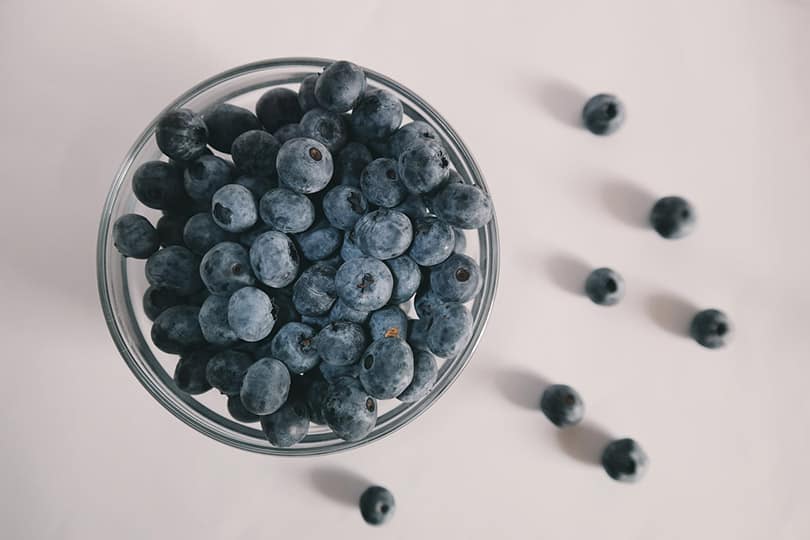
As wonderful as blueberries are to our bodies, we need to remember that they’re not considered a superfood for your furry friend and offer less benefit to your cat’s body than commercial cat food. Although they’re not harmful to your cat if they’ve munched one or two that have fallen to the floor, they shouldn’t be consumed regularly or in large quantities. Here’s why:
Gastrointestinal Upset
Due to cats being obligate carnivores, their bodies aren’t necessarily designed to digest and process foods other than meat sources. They also don’t need fruits and vegetables because they absorb the nutrients they need from meat. However, if your cat consumes a small number of blueberries—no more than three—they shouldn’t have too much of an issue. However, larger quantities will be harder to digest and can hurt your cat’s stomach.
Sensitivity or Medical Conditions
Although not true for all cats, your cat may have a food sensitivity to blueberries and become sick, resulting in vomiting, diarrhea, or itchy and inflamed skin. Your cat may also react poorly to blueberries if they have a medical condition, such as diabetes, as even the low sugar content they contain may be too much for your cat’s body.
Conclusion
Although blueberries aren’t toxic to cats, they aren’t necessarily good either unless given in small quantities. Blueberries aren’t considered a superfood for cats, but they do offer a few health benefits as they are high in antioxidants, fiber, water, and vitamins which boost their immune system and help to fight free radicals. However, if your cat has diabetes or food sensitivities to blueberries, keep them away from this fruit.
Featured Image Credit: Pixabay
